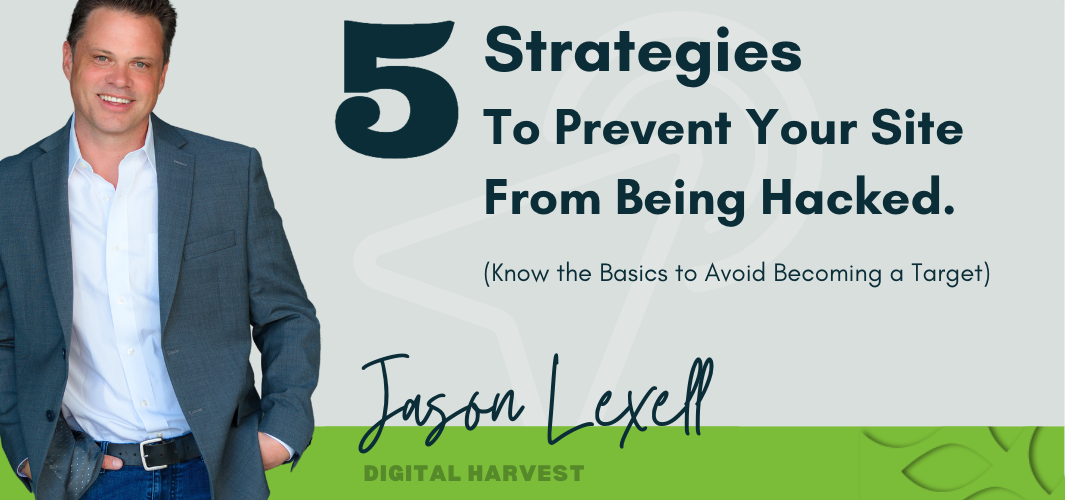Having a website hacked is no fun. Trust me — I’ve seen my share and heard my share of horror stories.
The call typically comes in from a panicked business owner who’s website is redirecting now to some unscrupulous web destination or not loading at all.
Getting a site back online can take hours or days depending on how prepared the management team (if one existed) was before the hack.
While there’s no such thing as 100% hacker proof, hacker resistant and hacker prepared is usually more than enough to keep the digital drama of being hacked out of your day.
1.) Keep Your Software and Plugins Up to Date!
Without question the number one reason for site intrusions is a small program (called a plugin) that aides your site function has been become out of date and a target to access your site. Regularly updating your website’s software, including your content management system (CMS) and plugins, is crucial for reducing the risk of hacking.
Updates often include security patches that address vulnerabilities discovered in previous versions. Once a vulnerability is discovered hackers post this to message boards and soon hackers around the globe and searching for outdated plugins the way lions search for weak antelope on the Serengeti.
2.) Use strong and unique passwords:
Weak passwords are an open invitation for hackers. Ensure that you and your website administrators use strong, complex passwords that include a combination of uppercase and lowercase letters, numbers, and special characters.
Additionally, avoid using the same password across multiple accounts to prevent a breach in one account from compromising others.
3.) Make sure your site is structured properly:
A client approached me with a visually stunning website that appeared flawless on the surface. However, due to improper coding and the neglect of necessary precautions during the initial development, the website became susceptible to constant attacks.
It may have been inadvertent — but the previous developer built the site in such a way that it could not be updated. This custom-coding all had to be completely redone and the site rebuilt before it became reliable and hasn’t had an issue since.
4. Regularly backup your website:
This is like getting unlimited extra lives in a video game. Make sure your host offers automatic backups on a frequent schedule. At least daily! In the event of a successful hacking attempt, having recent backups of your website can be a lifesaver.
With a backup of your site prior to the hackers installing malicious code you can easily revert the site to better days and then take steps to make the site secure.
5. Keep the site simple:
This may be counter-intuitive, however sites that are built in a way that’s unnecessarily complex are often extremely difficult to keep updated. It makes it easy for malicious code to hide and go undetected. It also makes trouble-shooting a nightmare.
We often see websites built in a way that’s unnecessarily complex by inexperienced designers. This causes a host of issues the least of which is becoming hacker targets.
6. Bonus Tip!!!! Secure your site with an SSL certificate:
An SSL (Secure Sockets Layer) certificate is a digital certificate that establishes a secure connection between a web server and a browser. It ensures that the data transmitted between the server and the browser is encrypted and protected from unauthorized access.
You need an SSL certificate to secure your website, gain users’ trust, and prevent data breaches by establishing a secure connection and displaying the padlock symbol in the browser’s address bar.
If you suspect your site may have been hacked…
We’ve helped loads of sites get back up and running with a plan to remain hack-free. If your site is doing weird things and behaving in a way that suggests it’s may have been hacked we may be able to help. Keeping a hacked site live can cause Google to delist your site or at the very least drop you in the rankings because hacked sites are unsafe and don’t deliver a good user experience.
It pays to act fast or risk losing your traffic and harming your online reputation.
If you’ve had challenges with your site getting hacked or suspect your site may not be as secure as you’d like feel free to setup a huddle, get in touch and we can discuss your options.

